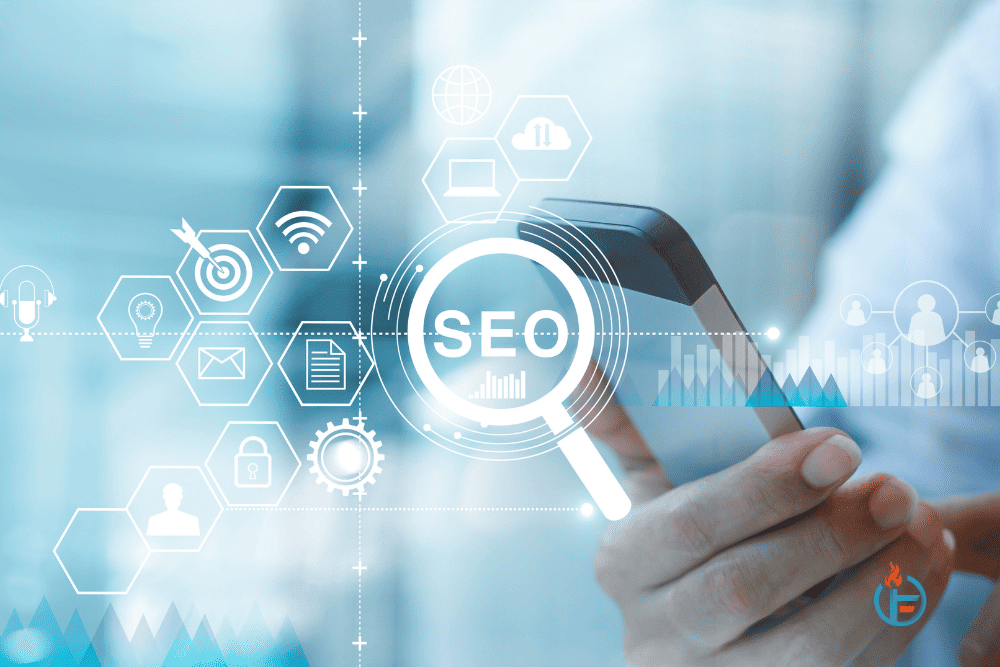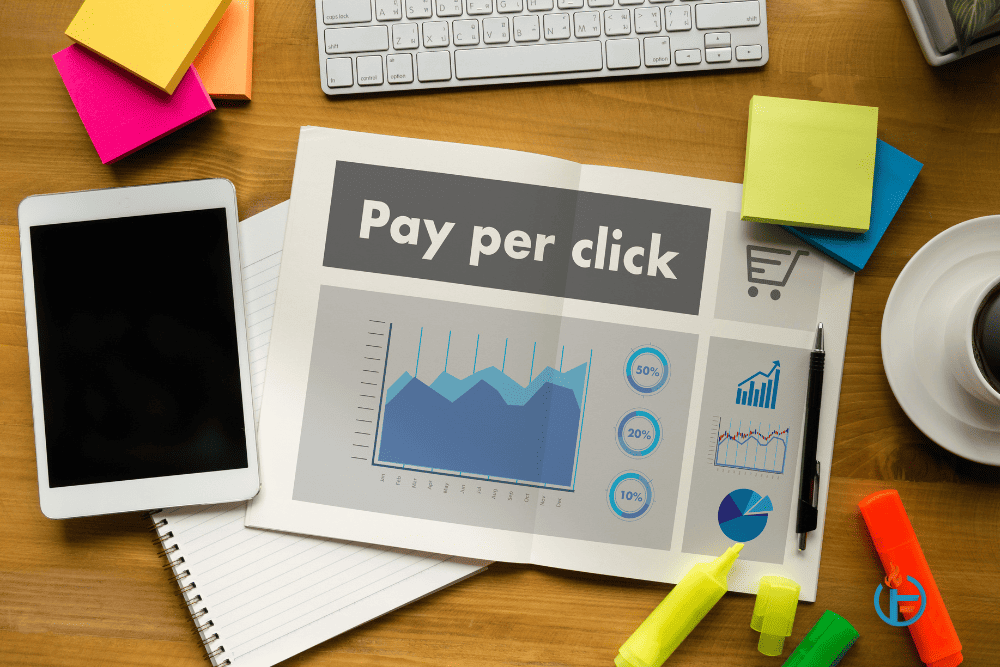As a small business, the pursuit of getting traffic to your website is akin to finding the holy grail of online success. With countless strategies buzzing around, two major contenders emerge in the arena: SEO (Search Engine Optimization) and PPC (Pay-Per-Click). These methodologies, though distinct, share a common goal – to elevate your digital presence and funnel potential customers right to your digital doorstep, thereby increasing traffic to your site.
Key Takeaways:
- SEO and PPC are vital strategies for attracting customers and getting traffic to your website.
- Each has unique benefits: SEO for long-term growth, PPC for immediate impact.
- Understanding how both works is crucial in choosing the right approach to increase website traffic.
Understanding SEO (Search Engine Optimization)
What is SEO? Search Engine Optimization, or SEO, is the art and science of making your website more visible and attractive to search engines like Google. It’s a long-term strategy aimed at building organic (unpaid) traffic. At its core, SEO is about understanding what people are searching for online, the words they’re using, and the type of content, like blog posts, they wish to consume.
How SEO Works to Attract Customers The journey of SEO in getting traffic to your website involves several steps:
- Keyword Research: Identifying what your potential customers are typing into search engines to increase traffic to your site.
- Content Creation: Developing valuable and relevant blog posts and content based on these keywords.
- On-Page Optimization: Ensuring that your website is search-engine friendly, from tags to URLs, to attract new customers.
- Off-Page Strategies: Building authority through backlinks from other websites, a vital way to drive traffic.
Understanding PPC (Pay-Per-Click)
What is PPC? Pay-Per-Click advertising, a form of paid advertising, is a model where advertisers pay a fee each time one of their ads is clicked. Essentially, it’s a way of buying visits to your site. The most popular PPC systems are Google Ads and Bing Ads.
Mechanism of PPC in Driving Website Traffic PPC works through a bidding system. You select keywords you want to trigger your ads and then bid on these keywords against other marketers. Your ad’s placement depends on several factors, including the relevance and quality of your ad, and the size of your bid.
SEO or PPC: A Comparative Analysis
Cost-Effectiveness: SEO vs PPC While PPC can bring immediate results, it requires continuous investment. The moment you stop paying, the traffic halts. On the other hand, SEO is a long-term investment. It may take time to rank, but once there, it provides sustained traffic, helping to increase traffic to your website.
Timeframe and Speed of Results SEO is a slow burner. It requires time to build authority and rank. PPC, in contrast, is like a sprinter, capable of generating immediate traffic and results, a quick way to get more traffic.
Quality of Traffic and Customer Engagement SEO traffic is often more engaged and committed. They’ve found you organically, which typically indicates a higher level of interest. PPC, while effective in driving traffic, might not always attract deeply engaged website visitors.
Best Practices for Maximizing SEO and PPC Results
- Optimizing SEO Efforts:
- Conduct Comprehensive Keyword Research: Regularly update your keyword list, considering the changing trends and search patterns.
- Focus on Quality Content: Content, especially blog posts, is king in SEO. Ensure it’s relevant, informative, and engaging to retain visitor interest.
- Optimize for Mobile: With the increasing prevalence of mobile searches, make sure your site is mobile-friendly.
- Improve User Experience: A website that’s easy to navigate and quick to load enhances user experience, which is a significant factor in SEO rankings.
- Build Quality Backlinks: High-quality backlinks from reputable sites boost your site’s credibility and search rankings.
- Use Analytics: Regularly monitor your SEO performance and adapt your strategy accordingly.
- Key Strategies for Effective PPC Campaigns:
- Target the Right Keywords: Just like SEO, PPC requires a good keyword strategy, focusing on those most likely to convert.
- Craft Compelling Ad Copy: Your ad copy should be clear, engaging, and have a strong call-to-action.
- Utilize Landing Pages Effectively: Ensure that the landing page relevant to the ad provides a seamless and relevant user experience.
- Test and Refine Ads: Use A/B testing for your ads to determine which versions perform the best.
- Monitor and Adjust Bids: Regularly monitor the performance of your bids and adjust them to optimize your PPC campaigns.
Tracking Your Marketing Efforts With Analytics
Tracking your marketing efforts is essential for any business looking to maximize their online presence and reach their target audience. One of the most effective tools for tracking website traffic and online marketing efforts is Google Analytics. This platform provides valuable insights into the behavior of visitors to your website, including where they come from, how long they stay on each page, and which pages they visit most frequently. By analyzing this data, businesses can gain a better understanding of the effectiveness of their online marketing strategies and make informed decisions about where to allocate their resources.
Additionally, tracking your marketing efforts allows you to identify areas for improvement and develop a strategy to attract more visitors to your website. This could include optimizing your website for search engines, investing in targeted advertising, or creating valuable content that resonates with your target audience. By identifying the most successful ways to increase traffic to your website, businesses can focus their efforts on the strategies that deliver the best results. Ultimately, tracking your marketing efforts through tools like Google Analytics is crucial for businesses looking to make the most of their online presence and drive success in the digital marketplace.
The Future of SEO and PPC in Digital Marketing
As digital marketing evolves, both SEO and PPC will continue to play crucial roles. Innovations in AI, voice search, and evolving search algorithms will shape the future of SEO. PPC will likely see advancements in targeting and automation.
Conclusion
In conclusion, while SEO and PPC have distinct advantages, the most effective digital marketing strategy often involves a blend of both. By understanding the nuances of each and how they can complement each other, businesses can craft a robust approach to driving traffic and getting customers to their websites.
Boost Your Digital Presence: Contact Innovative Flare for Expert SEO and PPC Strategies
Ready to Ignite Your Website’s Traffic? At Innovative Flare, we specialize in crafting tailor-made SEO and PPC strategies that align with your business goals. Whether you’re looking to build long-term organic traffic through SEO or seeking immediate results with PPC, our team of experts is here to guide you every step of the way. Contact us today to start your journey towards digital excellence!
Frequently Asked Questions (FAQ)
1. What is the primary difference between SEO and PPC?
SEO focuses on optimizing your site to rank higher in organic search results, while PPC is about paying for your site to appear in the ad sections of search results.
2. How long does it take to see results from SEO and PPC?
PPC can show immediate results, often within days, while SEO is a longer-term strategy, typically taking months to see significant changes in traffic and rankings.
3. Can I do SEO and PPC myself, or do I need to hire a professional?
While it’s possible to manage both SEO and PPC yourself, hiring a professional can provide better results due to their expertise and experience.
4. How much should I budget for SEO and PPC?
Budgets can vary greatly depending on the size of your business and competitive landscape. It’s best to start with a comfortable amount and adjust as you see results.
5. Is SEO or PPC better for small businesses?
Both can be effective for small businesses. SEO is a good long-term investment, while PPC can be useful for quick results or specific campaigns.
6. How do I choose the right keywords for SEO and PPC?
Use keyword research tools and consider your target audience’s search habits, competition, and relevance to your business.
7. How often should I update my SEO strategy?
SEO should be monitored regularly, and strategies should be updated in response to performance data and search engine algorithm updates.
8. Can SEO and PPC work together?
Absolutely. SEO and PPC can complement each other, with insights from one informing strategies in the other.
9. Are backlinks still important for SEO?
Yes, high-quality backlinks from reputable sites are still a significant factor in SEO rankings.
10. How do I measure the success of my SEO and PPC efforts?
Use analytics tools to track metrics like traffic, click-through rates, conversion rates, and keyword rankings to measure success.
 seolounge
seolounge


